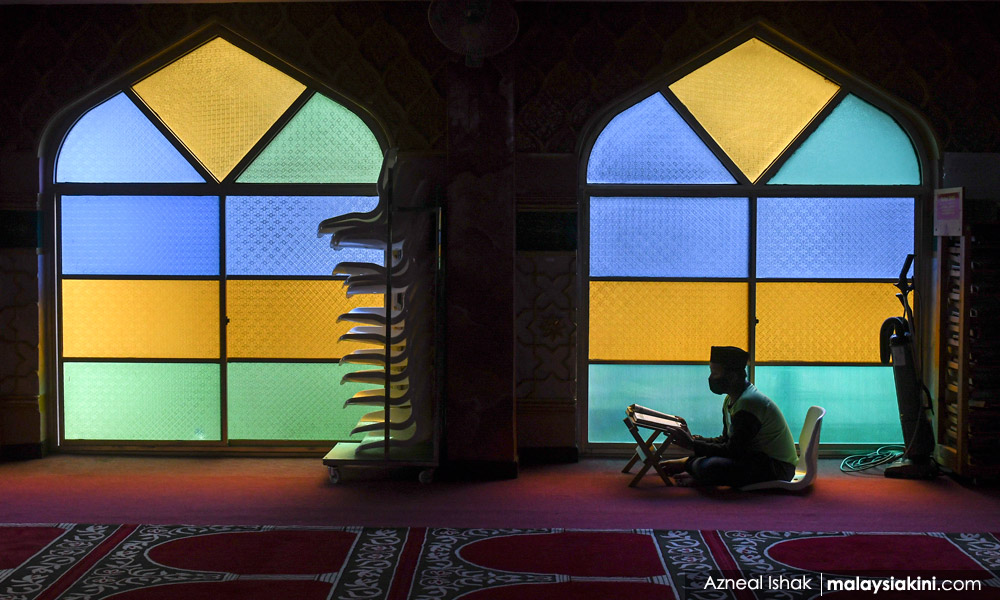Recep Tayyip Erdogan, recently re-elected as President of Turkiye, was once asked why he did not add “Islamic” to the name of his Justice and Development Party (AK Parti) in view of its religious roots and aspirations.
“Ak” means clean, white or unblemished in Turkish. Erdogan replied that he omitted it so failures of his party would not be viewed as that of Islam.
Malay leaders, politicians and intellectuals would do well to ponder Erdogan’s wisdom.
In Malaysia today, the glaring failures of the unabashedly Islamic party in Kedah, Kelantan and Terengganu are now seen, more so by non-Malays, as the failures of Islam.
Instead, it should be of corrupt and incompetent Malay leaders and politicians riding on Islam.
The Kedah menteri besar is claiming Penang so he could levy RM150 million assessment annually. It would be more productive if he were to learn how the state became developed and prosperous.

The incompetence of Kelantan’s government is the kopi susu (café au lait) flowing out of the taps there.
Meanwhile, the Terengganu menteri besar saw no problem in selling state land to an entity led by his wife at a mere fraction of its market price.
Elsewhere that is corruption, with the pair jailed. However, as per PAS’ Islam, the couple’s bonanza is berkat (blessing) and rezeki (bounty) from Allah. Such perversion of our great faith!
Malay intellectuals too are not spared this obsession with religion, reflected in their puerile pursuit of the “Islamisation of Knowledge” (IOK).
Belatedly, recognising the futility of their efforts, they have now relabelled it as “Integration of Knowledge.” Same initials, same fraudulent content.
Syed Naquib Alatas was instrumental for IOK with the publication of his 1982 book titled “Islam And Secularism”. He challenged the assumption of the universality of modern social sciences’ insights.
Later, the University of British Columbia’s Joe Henrich too characterised much of social science findings as WEIRD (Western, educated, industrialised, rich and democratic), based on the skewed samples studied.

IOK notwithstanding, it is difficult to accept that there is a uniquely “Islamic” chemistry or quantum physics.
There are consequences to this IOK, as with making Malays averse to science as reflected in the declining numbers pursuing the subject.
Naguib’s IOK occurred about the same time as Edward Said’s critique of Western scholarship on the colonised world.
While Said’s book titled “Orientalism” furthered our understanding of the West’s reading of “others”, Naquib’s “Islam and Secularism” led to the intellectual parochialism of Muslim social scientists.
The irony is that both Naquib and Said are products of the very Western institutions that they had criticised - the former from Sandhurst, McGill, and London University; and the latter from Princeton and Harvard.
I cannot imagine Al Azhar producing such daring innovative thinkers.
Learn from past Muslim intellectuals
It would be more fruitful for Muslim intellectuals to emulate their ancient luminaires. The Al Kindis, Ibn Rushds and Al Farabis did not bother to “Islamise” Greek philosophy.
They studied and absorbed it, later making their own seminal contributions that led to, among others, the “Golden Age of Islam”.
They were unperturbed by learning from the atheistic and polytheistic Greeks.
Knowledge is knowledge, it ultimately emanates and is a blessing from Allah. That the Almighty chose to dispense the wisdom on the concept of zero to a Hindu is not for us to question but to learn and benefit.
China is poised to be the largest economy and strongest power, achieved within a generation or two. An unparalleled achievement!
Deng Xiaoping and his fellow leaders enthusiastically absorbed Western capitalism and knowledge like ancient Muslims and Greek philosophy. The Chinese did not bother with “Sinofication” of Western knowledge.
Now that they are successful and powerful, they can assert with great confidence that Western norms and values are not universal. Many are listening and agreeing; the power of success!
Dispense with IOK and the associated futile obsession with the minutiae of halal, haram, or maqasid syariah.
Emulate the Turkish ak; bring justice and development to the ummah. That would be halal whatever your fiqh (Islamic jurisprudence).
Indulge in corruption and it would be haram, per Muslim as well as non-Muslim holy books. - Mkini
M BAKRI MUSA is a Malaysian-born and Canadian-trained surgeon in private practice in Silicon Valley, California. He writes at bakrimusa.blogspot.com
The views expressed here are those of the author/contributor and do not necessarily represent the views of MMKtT.




No comments:
Post a Comment
Note: Only a member of this blog may post a comment.